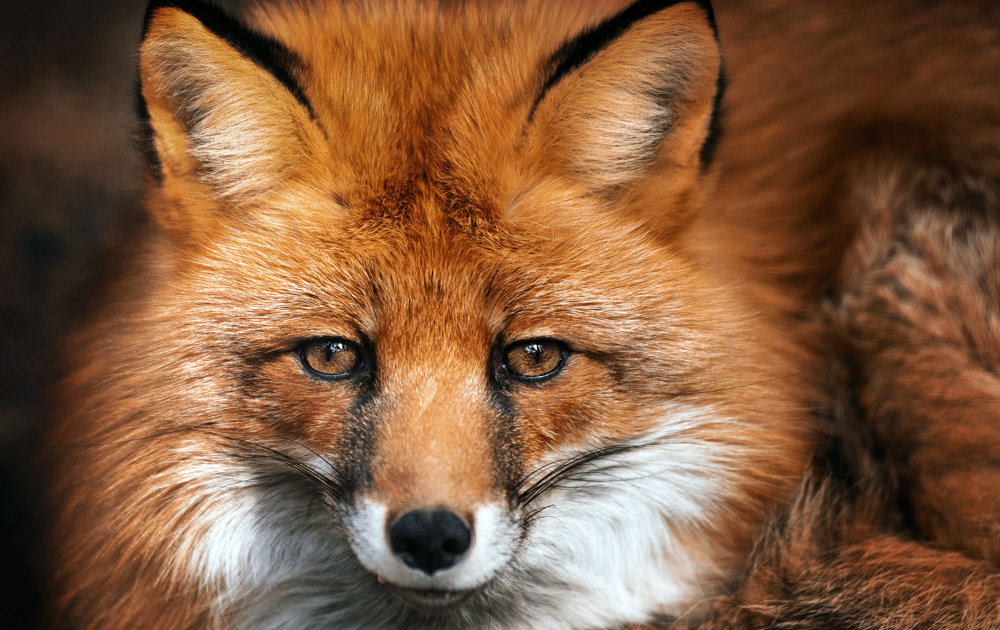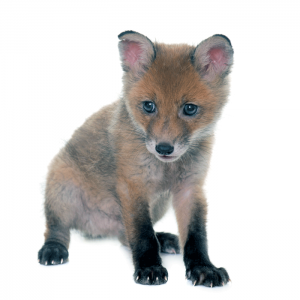CARE OF AN ORPHANED FOX
 Foxes are great parents who care for their young (kits or cubs) until they are mature enough to fend for themselves. They reproduce once a year with a litter size ranging from one to eleven cubs.
Foxes are great parents who care for their young (kits or cubs) until they are mature enough to fend for themselves. They reproduce once a year with a litter size ranging from one to eleven cubs.
The cubs are born blind, and it takes about nine days after birth to open their eyes. During this time, the female (vixen) stays in the den to protect and nurture the cubs, while the male (dog) goes out to hunt.
The cubs stay with their parents for seven months and are trained to hunt and fend for themselves before they go away to start their own families. Foxes are known to do whatever it takes to care for their young and will not abandon them for any reason.
What should you do in cases of abandonment?
- Observe the cub for about 24 hours, or at least overnight. In most cases, the parent will come back for their cub. Some wild animals like foxes and coyotes have been known to leave their young for a while to hunt, especially if their partners have been killed.
- If you disturbed the den and caused the vixen to flee, leaving her cubs, do not worry. She will return when she no longer feels threatened. You can observe from afar to make sure that the cubs are safe.
- Another reason why a cub might be left on its own is that the parents might have been killed by predators while hunting or during flooding. In this case, you must make sure to observe for a while to see if the other parent will come back for the cub.
- If after 24 hours the cub is still there, you can decide to adopt and care for it till it can fend for itself.
Caring for an orphaned cub
When adopting a cub, remind yourself that they are wild animals, and do not try to domesticate them or have them for pets, no matter how cute or friendly they look. You be willing to send them back into the wild as soon as they are old enough to fend for themselves.

If the orphaned cub is already weaned and has opened its eyes, there is no need to carry it away from its home. You can provide dog food and water for it, leaving them a distance away, and observe its growth. There should be minimal contact between you and the cub.
Feed the weaned cub twice a day with canine growth formula. You can supplement with nuts, berries, and worms, and then introduce dead rats and mice to make it easier for the cub to hunt on its own.
When dealing with newborn cubs, however, you may need to:
- Feed the cub with tissue replacement fluid for the first meal. This is important to replace lost electrolytes, glucose, and glycine.
- Keep the cub warm. You could use warm blankets or thick clothes to wrap around the cub. This is to prevent hypothermia, which could result in the cub’s death.
- Feed the cub with milk formula twice a day for about two weeks, after which you can start supplementing with any canine growth formula.
- Monitor bowel emptying and urinating. This can be assisted by massaging the genitals downwards using a cotton ball or soft cloth.
- Simulate the natural fox den for growing the cubs. This you can do by surrounding open space with a chain-linked fence and corrugated panels to serve as rooftops.
- The cub can be weaned in 4-6 weeks, after which you can re-introduce it to the wild and monitor it to make sure that it is settling in well. Alternatively, you may send it to the wild animal rehabilitation center, which will handle its re-introduction to the wild.
Making a difference to one fox cub might seem insignificant and tiring as it requires energy and resources. Still, it shows how humane and sensitive one is –proof of selflessness and love for these creatures that may never be able to repay you for your kindness.
